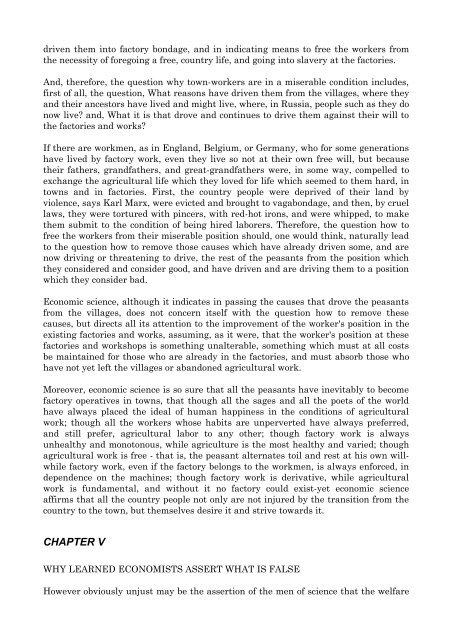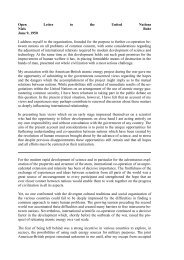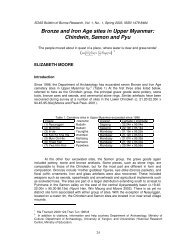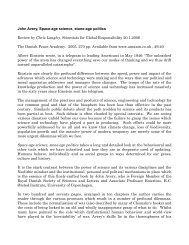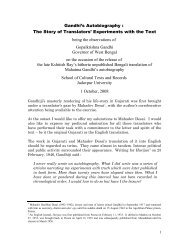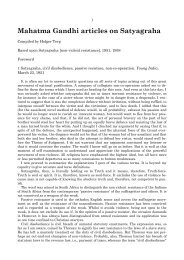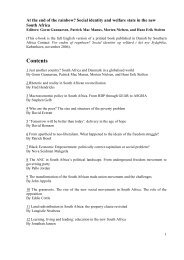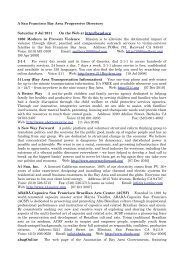THE SLAVERY OF OUR TIMES PREFACE / INTRODUCTION
THE SLAVERY OF OUR TIMES PREFACE / INTRODUCTION
THE SLAVERY OF OUR TIMES PREFACE / INTRODUCTION
Create successful ePaper yourself
Turn your PDF publications into a flip-book with our unique Google optimized e-Paper software.
driven them into factory bondage, and in indicating means to free the workers from<br />
the necessity of foregoing a free, country life, and going into slavery at the factories.<br />
And, therefore, the question why town-workers are in a miserable condition includes,<br />
first of all, the question, What reasons have driven them from the villages, where they<br />
and their ancestors have lived and might live, where, in Russia, people such as they do<br />
now live? and, What it is that drove and continues to drive them against their will to<br />
the factories and works?<br />
If there are workmen, as in England, Belgium, or Germany, who for some generations<br />
have lived by factory work, even they live so not at their own free will, but because<br />
their fathers, grandfathers, and great-grandfathers were, in some way, compelled to<br />
exchange the agricultural life which they loved for life which seemed to them hard, in<br />
towns and in factories. First, the country people were deprived of their land by<br />
violence, says Karl Marx, were evicted and brought to vagabondage, and then, by cruel<br />
laws, they were tortured with pincers, with red-hot irons, and were whipped, to make<br />
them submit to the condition of being hired laborers. Therefore, the question how to<br />
free the workers from their miserable position should, one would think, naturally lead<br />
to the question how to remove those causes which have already driven some, and are<br />
now driving or threatening to drive, the rest of the peasants from the position which<br />
they considered and consider good, and have driven and are driving them to a position<br />
which they consider bad.<br />
Economic science, although it indicates in passing the causes that drove the peasants<br />
from the villages, does not concern itself with the question how to remove these<br />
causes, but directs all its attention to the improvement of the worker's position in the<br />
existing factories and works, assuming, as it were, that the worker's position at these<br />
factories and workshops is something unalterable, something which must at all costs<br />
be maintained for those who are already in the factories, and must absorb those who<br />
have not yet left the villages or abandoned agricultural work.<br />
Moreover, economic science is so sure that all the peasants have inevitably to become<br />
factory operatives in towns, that though all the sages and all the poets of the world<br />
have always placed the ideal of human happiness in the conditions of agricultural<br />
work; though all the workers whose habits are unperverted have always preferred,<br />
and still prefer, agricultural labor to any other; though factory work is always<br />
unhealthy and monotonous, while agriculture is the most healthy and varied; though<br />
agricultural work is free - that is, the peasant alternates toil and rest at his own willwhile<br />
factory work, even if the factory belongs to the workmen, is always enforced, in<br />
dependence on the machines; though factory work is derivative, while agricultural<br />
work is fundamental, and without it no factory could exist-yet economic science<br />
affirms that all the country people not only are not injured by the transition from the<br />
country to the town, but themselves desire it and strive towards it.<br />
CHAPTER V<br />
WHY LEARNED ECONOMISTS ASSERT WHAT IS FALSE<br />
However obviously unjust may be the assertion of the men of science that the welfare


